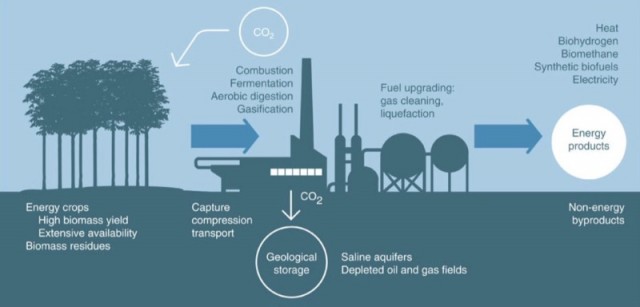NEWS Clean Technica discusses the recent RAEL paper in Nature Climate Change on carbon negative energy systems
The large-scale utilization of electricity generated from biomass partnered with carbon capture technology — dubbed bioenergy with carbon capture and sequestration (BECCS) by the researchers — could result in greatly reduced emissions and a “carbon-negative” power system in the western US, according to new research from the University of California at Berkeley.
Study lead author, Daniel Sanchez, noted in a recent press release that this combination could potentially offset the carbon emissions associated with other sources as well — such as fossil fuel power plants, and the transportation sector (diesel- and gas-powered vehicles).
o be specific, the new research found that BECCS when combined with aggressive renewable energy deployment and fossil fuel–associated emissions reductions could result in a “carbon-negative power system” in Western North America by the year 2050 — with an up to 145% emissions reduction as compared against 1990 levels.
Reductions that significant could occur with as little as 7% of total electricity coming from BECCS, according to the new findings — which were arrived at via computer modeling.
In many of the other scenarios explored by the new research, the offsetting of carbon emissions provided by BECCS was more valuable to the electric system than the electricity produced itself was. Of course this kind of “value” is a relative one — as all values are. If governments don’t value the offsetting of carbon emissions, for instance,…
Those behind the new research admit that biomass + carbon capture is still a bit of an unknown in many ways, so the findings are tentative ones, until put into practicem that is — which is what the researchers want.
“There are a lot of commercial uncertainties about carbon capture and sequestration technologies,” stated researcher Sanchez. “Nevertheless, we’re taking this technology and showing that in the Western United States 35 years from now, BECCS doesn’t merely let you reduce emissions by 80% – the current 2050 goal in California – but gets the power system to negative carbon emissions: you store more carbon than you create.”
Possibly… that is. I admit to having some doubts about this, but interesting work nonetheless.
Image Credit: UC Berkeley


You must be logged in to post a comment.